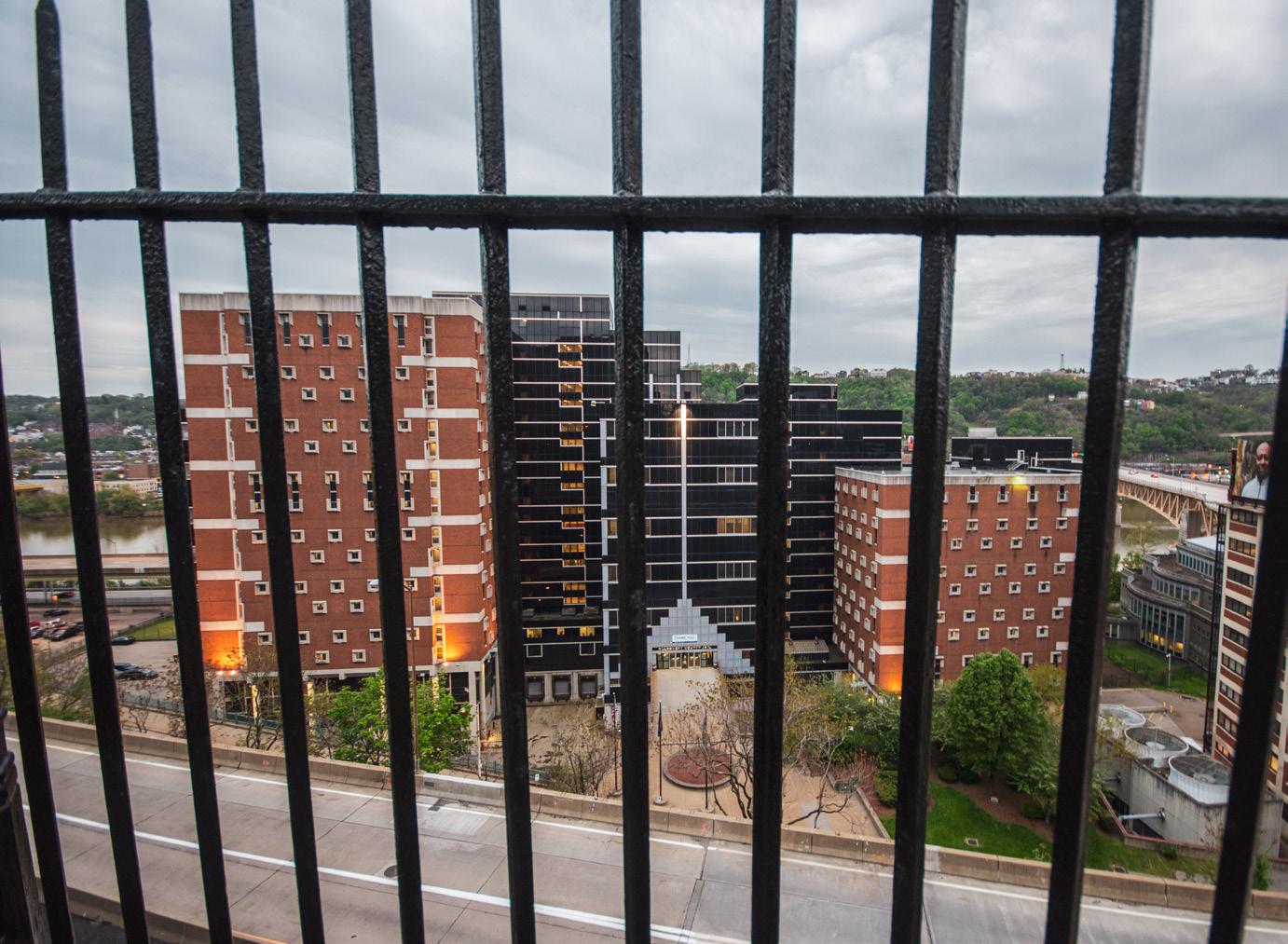
4 minute read
Second Opinion
SECOND OPINION ALLEGHENY COUNTY JAIL'S COVID-19 STATS AREN'T AS HEALTHY AS THEY MAY APPEAR
“Numbers don’t lie.” We’ve all heard that old trope millions of times in the past. But what can also be said is that numbers don’t always tell the whole truth.
Advertisement
When it comes to COVID-19 data from the Allegheny County Jail, the numbers the public sees are true and accurate, but the way they’re being used doesn’t tell the whole story. Let’s look at two situations at the ACJ where raw data and press releases don’t tell the whole story.
All is not well
There’s no doubt that raw numbers easily make the situation at least look, at least, OK–the jail’s population is down, the number of releases since March 16 are up, and bookings at the jail are down.
But are things really that good.? At the moment, 24 inmates have been confirmed to have COVID-19 through limited testing. Looking at that in the simplest of terms, 24 cases of COVID-19 is just 1.5 percent of the total incarcerated population of 1,643. The infection rate in Allegheny County is less than one percent.
But let’s look at it another way.
The number of individuals who tested positive is 24. The number of inmates tested for COVID-19 is 44. That means the jail’s rate of positive results to overall testing is 55 percent. That rate in Pennsylvania, according to stats from the State Health Department, is 21 percent.
This high rate of infection exists and the county has only tested 2.7 percent of the inmate population. Many states and jurisdictions have moved to mass testing and had pretty shocking results. The Federal government has widened its testing to
BY CHARLIE DEITCH - PITTSBURGH CURRENT EDITOR CHARLIE@PITTSBURGHCURRENT.COM
The Allegheny County Jail (Current photos by Jake Mysliwczyk)
seek out asymptomatic patients after a pregnant inmate died of coronavirus last week.
In Montgomery County, officials wanted to find out how rampant the virus was in the jail and decided to test all 948 inmates. Of those tested, according to the Philadelphia Inquirer, 177 inmates tested positive, an 18 percent rate of infection, a rate that was also 30 times higher than what initial tests have shown. Additionally, the paper reports, 171 of those inmates exhibited no symptoms. Mass texting has revealed large numbers of infected inmates at every facility that has done mass testing. In North Carolina, officials became concerned after 39 inmates tested positive for the virus. They decided to test all 700 inmates at the jail and the number of infected sky-rocketed to 444. The results have been similar in other states as well. But those who know, say it’s the only way to get a clear picture.
“Unless you do universal testing in all environments, the risk of spread is enormous,” Leonard Rubenstein, a professor at Johns Hopkins Bloomberg School of Public Health, told USA Today. “If you are waiting for symptoms to emerge before you do the testing, you are getting a false picture of what is going on. … It’s too late.”
However, mass testing does not seem to be on the agenda here. At the county’s weekly COVID-19 briefing, according to Trib Live, “Allegheny County Executive Rich Fitzgerald on Wednesday shrugged off the idea of mass testing at the county jail, where at least two dozen inmates have tested positive for the coronavirus.”
Catch, Release, Catch Again
One number touted by the ACJ, county government, and the courts, is that 1,148 inmates have been released from the jail since March 16. The move to decarcerate the jail began before that when several advo- cates, citizens, and elected officials began a campaign to urge the release of as many inmates as possible to avoid a massive outbreak. The problem is, the jail has been filling up again with new arrivals.
According to jail stats, the inmate population was 2,181 on March 16 and 1,148 inmates have been released. Optically, that’s a pretty good-looking achievement. But it’s just optics. Since March 16, 400 new inmates were booked into the facility. Granted, fewer people have been booked into the jail and more people have been released than in previous months or even years, but the goal is to limit exposure to COVID-19. So while technically 1,148 people have been released, the jail population from March 16 to April 29 has only decreased by 570 inmates.
Another problem is that the facility is still receiving individuals arrested on minor charges, despite the need to keep the population down. Advo- cates and elected officials have urged for a decrease in arrests for such “ticky-tack” charges. For example, a $5,000 cash bail was set in early April for two different individuals on separate criminal trespass charges. Another individual was jailed on $1,000 cash bail for retail theft.
In fact, the county jail’s population as of May 5 is actually larger than it was in mid-April.
EDITOR'S NOTE
This story was made possible through a grant from the Facebook Journalism Project, the Lenfest In- stitute for Journalism and the Local Media Association.










